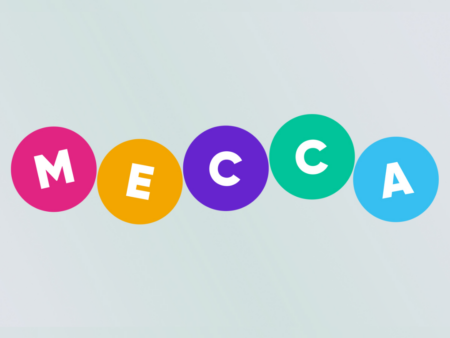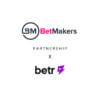The Gaming Commission (GC) of Belgium has unveiled groundbreaking regulations aimed at reshaping the landscape of sports sponsorship by gambling operators. Set to take effect on 1 January 2025, these measures are designed to foster a safer environment for players while ensuring the integrity of sports sponsorship deals.
A Closer Look at the New Sponsorship Guidelines
The regulations introduced by the GC establish stringent limitations on the presence of gambling-related advertising in sports. These changes stem from Article 61 of the Gambling Act, which prohibits advertising from gambling operators unless specifically authorized by a royal decree.
Key Provisions of the New Regulations
- Ban on Sports Club Sponsorships:
The Gaming Commission will prohibit sponsorships from gambling operators for sports clubs across all platforms, including supporter networks, websites, and online broadcast channels. This ban extends to foundations and any entity affiliated with sports organizations. - Advertising Defined Broadly:
Any display of a gambling operator’s logo or brand name will be interpreted as advertising, irrespective of whether it directly promotes gambling. This interpretation underscores the comprehensive scope of the guidelines. - Restrictions on Sportswear Advertising:
From January 2025, logos and advertisements for gambling operators will no longer be allowed on the front of sportswear. Furthermore, any permitted advertising will be restricted to a maximum surface area of 75 cm², significantly reducing its visibility. - Prohibition of Promotions in Sports Venues:
Gambling-related advertising will be entirely banned at sports venues, ensuring that fans are not exposed to promotional content during games or events.
Impact on the Sports Industry
Sports Clubs and Sponsorship Agreements
These regulations will significantly impact sports clubs reliant on sponsorship revenues from gambling operators. Many clubs in Belgium have long-standing agreements with such entities, which provide crucial financial support. The new rules will force clubs to diversify their sponsorship portfolios, potentially seeking alternative industries to fill the gap.
Gaming Operators’ Marketing Strategies
For gambling operators, the restrictions mark a substantial shift in marketing opportunities. With digital advertising and sponsorship forming a major part of their promotional strategies, these operators will need to reassess their approaches to comply with the new regulations while maintaining visibility.
Protecting Players and Promoting Fairness
Player Safety at the Forefront
The Gaming Commission has repeatedly emphasized that the primary goal of these measures is to protect players from the potential harms of gambling exposure. By reducing the visibility of gambling-related branding in sports, the GC aims to create a safer environment, particularly for vulnerable groups such as young fans.
Ensuring a Level Playing Field
The guidelines are also intended to ensure a fair sponsorship environment in the sports industry. By limiting the influence of gambling operators, the GC seeks to promote transparency and fairness in sponsorship agreements.
Comparison to International Trends
Belgium’s approach is part of a broader trend observed in various countries, where governments are taking steps to regulate gambling advertisements in sports. For example:
- Italy: Implemented a total ban on gambling sponsorships in sports in 2019.
- Spain: Introduced restrictions on gambling advertising during specific time slots.
- United Kingdom: Considering limitations on gambling sponsorships in football.
These measures reflect growing global awareness of the potential risks associated with gambling advertising and its influence on sports fans.
Future Implications for the Gambling and Sports Industries
For the Gambling Sector
The new regulations will likely prompt gambling operators to explore alternative marketing avenues, such as social media campaigns, influencer partnerships, and other digital strategies. This shift could lead to innovation in how operators engage with their audiences.
For Sports Clubs
While the initial phase of adaptation may be challenging, clubs might benefit in the long term by establishing sponsorship agreements with industries that align with their values and the well-being of their fans. This change could pave the way for healthier partnerships and greater financial stability.
Conclusion: The New Regulations
Belgium’s Gaming Commission has taken a bold step in redefining the role of gambling sponsorships in sports. These new regulations not only prioritize player protection and fairness but also challenge the sports industry to adapt to a rapidly changing sponsorship landscape. By January 2025, the sports ecosystem in Belgium will be fundamentally transformed, setting a precedent for other nations to follow.
FAQs About Belgium’s New Regulations on Gambling Sponsorship in Sports
1. What are the new regulations introduced by Belgium’s Gaming Commission?
The Gaming Commission (GC) of Belgium has implemented new regulations to limit gambling-related sponsorship in sports. Starting from 1 January 2025, gambling operators will no longer be allowed to sponsor sports clubs or display their logos on sportswear. Additional restrictions include a ban on promotions at sports venues and online platforms associated with sports clubs.
2. When will these new rules take effect?
The new rules are scheduled to take effect from 1 January 2025.
3. What sponsorship activities are prohibited under the new regulations?
The regulations ban:
- Sponsorships from gambling operators for sports clubs.
- Displaying gambling-related logos or brand names on sportswear.
- Promotions in sports venues and online channels linked to sports organizations.
- Advertising exceeding 75 cm² on permitted placements.
4. What is the reasoning behind these restrictions?
The main goals are to:
- Protect players, especially vulnerable groups, from the harmful effects of gambling.
- Ensure fairness and transparency in sports sponsorship agreements.
- Reduce the visibility of gambling advertisements in sports environments.
5. How will the restrictions affect gambling operators?
Gambling operators will no longer be able to advertise via sponsorships in sports clubs or venues. They will need to explore alternative marketing strategies, such as social media campaigns and digital advertising, to maintain their visibility.
6. How will the rules impact sports clubs?
Sports clubs relying on sponsorship revenues from gambling operators may face financial challenges initially. They will need to seek alternative sponsors from other industries to replace the funding provided by gambling entities.
7. What does the regulation say about sportswear advertising?
Gambling-related logos or advertisements can no longer appear on the front of sportswear, and any permitted advertising will be limited to a maximum surface area of 75 cm².
8. How does this compare to other countries’ gambling regulations?
Belgium’s rules align with international trends:
- Italy: Banned gambling sponsorships in sports in 2019.
- Spain: Restricts gambling ads to specific time slots.
- UK: Considering limitations on gambling sponsorship in football.
9. Will these changes improve player protection?
Yes, the GC has emphasized that the regulations aim to create a safer environment for players by reducing exposure to gambling advertisements, particularly among vulnerable audiences.


















